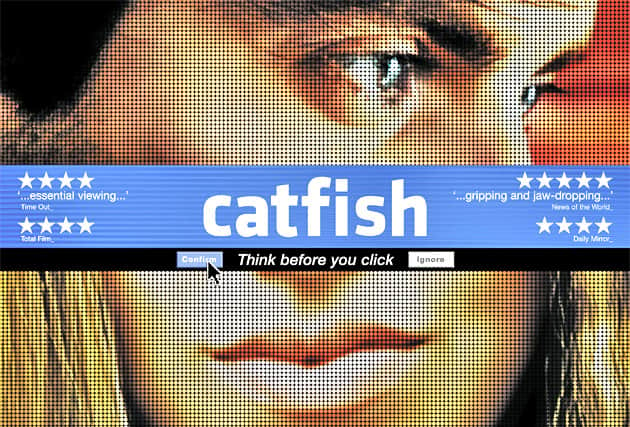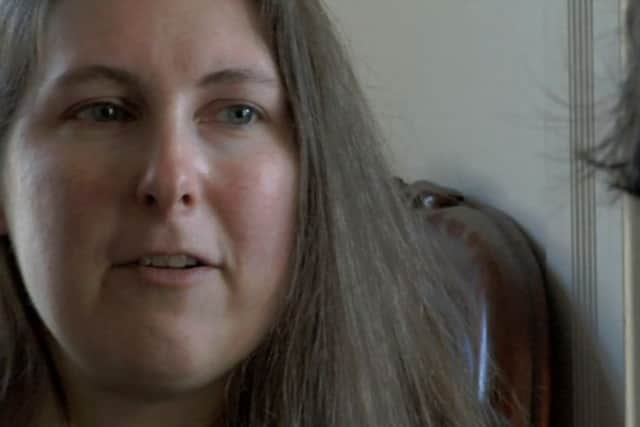What is mask fishing? Meaning explained, where the TikTok term came from - and is it similar to catfishing?
This article contains affiliate links. We may earn a small commission on items purchased through this article, but that does not affect our editorial judgement.


As mask restrictions around the world have eased to varying degrees, teenagers (and adults) have found themselves at the centre of a new dating dilemma - mask fishing.
This is everything you need to know.
What is mask fishing?
For the uninitiated, Urban Dictionary defines mask fishing as: “The phenomenon where a person appears to be more attractive because they are wearing a face mask.”
Advertisement
Hide AdAdvertisement
Hide AdThe phrase emerged on social media platform TikTok, when users would show their viewers what they looked like with a face mask on and what they looked like with it off, and asking: “Am I mask fishing?”
Then it would be up to the audience to decide - if they look better with the mask on, then they’re a mask fisher, and if they don’t, or look how you would expect them to look, then they’re not.


Speaking to the New York Times, 17-year-old Tanushri Sundaram says that she thinks everyone at her school is a bit of a “mask fisher”.
She said: “When you have a mask on, you only get to see the forehead, the eyes, and when you’re only seeing that, you just kind of have an image in your head of what someone’s supposed to look like.
Advertisement
Hide AdAdvertisement
Hide Ad“So when you take that mask off, it’s like a new person you’re looking at. It’s always going to be something you don’t expect.”
Chatting to the news outlet, Nuzhat Ahmed, 16, also said: “I never really thought about it up until people would bring it up when I would take off my mask to take a sip of water. They’d be like, “Oh, this is not what I imagine you to look like” and then it would come to me like, “Oh am I mask fishing?””
Where does the term come from?
As a general rule of thumb when it comes to the internet, if there’s a new piece of slang or terminology going around that includes the suffix “fishing”, it probably has something to do with a person or thing pretending or appearing to be something that it’s not, such as Blackfishing, petfishing and wokefishing.
This is thanks to the widespread use of the term catfishing, popularised by the documentary, and subsequent MTV show of the same name, Catfish. The documentary, released in 2010, follows the story of Nev Schulman, a photographer, who strikes up an online friendship with a young girl called Abby Pierce, an eight year old artistic prodigy, after she sends him a painting of one of his photos.


Advertisement
Hide AdAdvertisement
Hide AdAs Nev gets to know Abby, he also gets to know the rest of her family, including parents Angela and Vince and her older half-sister Megan. Nev and Megan begin an online relationship, however, as their relationship progresses, Nev begins to suspect that not everything Megan is telling him is the truth.
When Nev decides to make an unannounced visit to Michigan, where Megan lives, it’s revealed that there is no Megan and instead, he has actually been talking to mother Angela the whole time.
The reason that the documentary got its name Catfish in the first place comes from a story told by Angela’s husband, Vince.
He says: “They used to tank cod from Alaska all the way to China. They’d keep them in vats in the ship. By the time the codfish reached China, the flesh was mush and tasteless.
Advertisement
Hide AdAdvertisement
Hide Ad“So this guy came up with the idea that if you put these cod in these big vats, put some catfish will keep the cod agile. And there are those people who are catfish in life. And they keep you on your toes.


“They keep you guessing, they keep you thinking, they keep you fresh. And I thank god for the catfish because we would be droll, boring and dull if we didn’t have somebody nipping at our fin.”
Whether the story about the cod and catfish getting shipped from Alaska to China itself is true or not (it has been pretty thoroughly debunked online), Vince’s explanation of what a catfish is simply refers to someone who “keeps you thinking” and “keeps you fresh”.
His meaning isn’t nearly as malicious as what the modern usage of the term has evolved to mean - specifically, people who create fake identities online.
Comment Guidelines
National World encourages reader discussion on our stories. User feedback, insights and back-and-forth exchanges add a rich layer of context to reporting. Please review our Community Guidelines before commenting.
